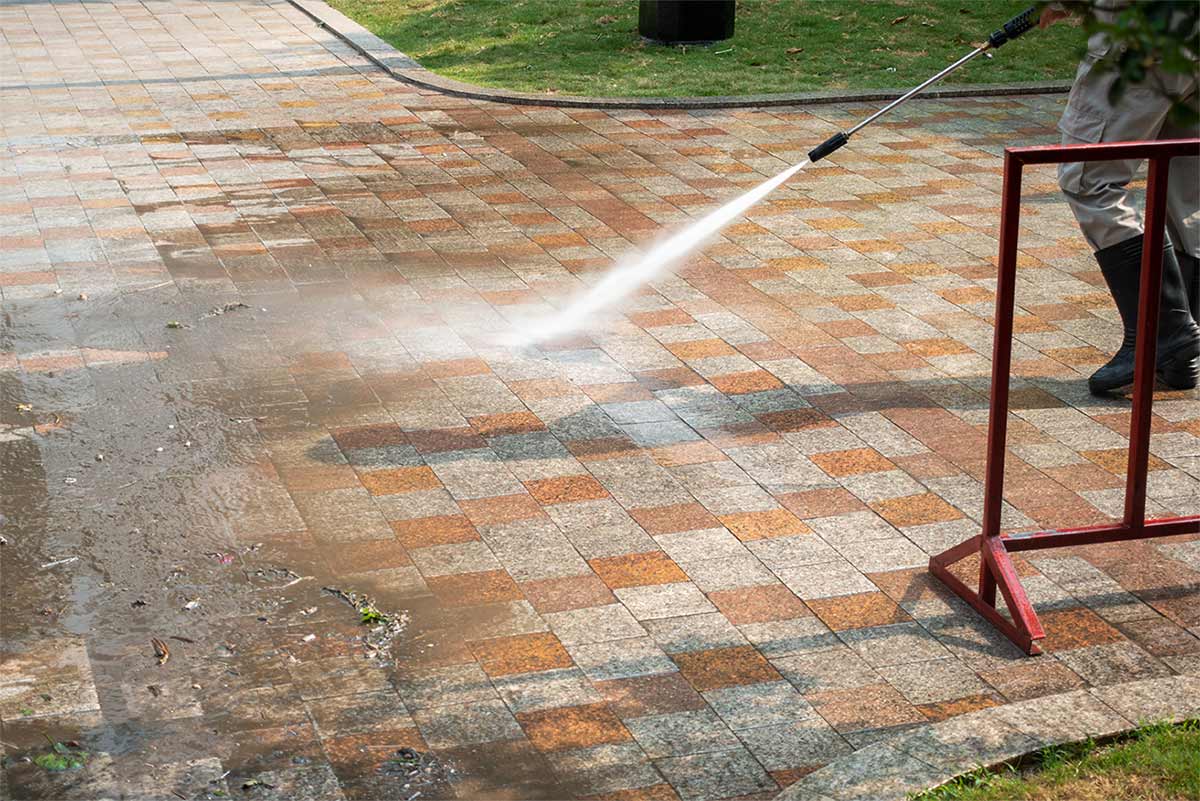
Is Pressure Washing Bricks, Okay?
Brick surface for both residential and commercial buildings has always been a remarkable idea. It doesn’t add a vintage touch to the modern architecture but also upscales the value and look of the property. Like everything else, these brick buildings call for regular maintenance and clean-up using the proper equipment to keep the green algae & black mildew from growing and developing gout lines. Cleaning your brick homes occasionally will do it. However, some property owners have started to look beyond cleaning for other home maintenance hacks. The problem with this approach is that home maintenance hacks have started to rely heavily on pressure washers lately, and there is no denying that. But there is a safe limit to doing everything. If you thought your pressure washer could be used to clean all types of surfaces, you got it wrong this time. So, can we use pressure washing for bricks? What could pressure washing do to your brick surfaces? And what other methods could be used to clean up brick homes? Read on to discover all of it.
Is Power Washing Okay for brick Surfaces?
Well, if this question were asked a few decades ago, maybe the answer would be yes. But for today, the answer is No. The reason behind this is that several top construction experts suggest that bricks produced and used today in the buildings are not strong enough to sustain pressure wash pressure compared to the concrete blocks. Contrary to this, the older brick buildings constructed any time around the eighties and nineties might have been strong enough to sustain that pressure. If you are sure your home was built anytime around that age, and its texture hasn’t yet worn out, you can risk using pressure wash on it. However, if you are doubtful about the age of your home or know it is younger than the mentioned time, a soft or low-pressure wash will be a better option.
What Happens if we apply Pressure Wash on the Bricks?
Bricks have a limited capacity to absorb and hold water. When you use pressure wash on them, they are likely to drink more water than their safe limit, and thus their chances to crumble and decay increase faster than otherwise. However, the damage will not be instant, and your brick wall will surely not fall right after the pressure wash. The decaying process will take time. From months to years. But one thing is sure, with every pressure wash, the lifespan of your bricks is significantly reduced. When our bricks decay faster, there will be a time when you will have to replace them. Depending upon where these bricks are to be returned, the cost of doing so might also differ. For example, the cost of replacing bricks in the structural components will be higher than where these bricks are used for aesthetic purposes (front look)/ partition. Cutting long short, if you want to avoid all the additional costs of finding the right quality of bricks and replacing them, all you need to do is to use the correct cleaning methods. And when we say the proper clean-up method, we mean anything but the pressure wash.
Conclusion
The priority of every property owner while cleaning their houses is to only clean the grime and green algae away and not to scrap off the layers of the surface or decay it, especially when you are dealing with bricks. Depending upon the strength, quality, and durability of different textures, the pressure applied to them during the wash can be different. Though bricks are considered one of the most tensile and rugged surfaces, using pressure wash can cause damage to it. So, it is recommended to keep these surfaces from pressure washing.


